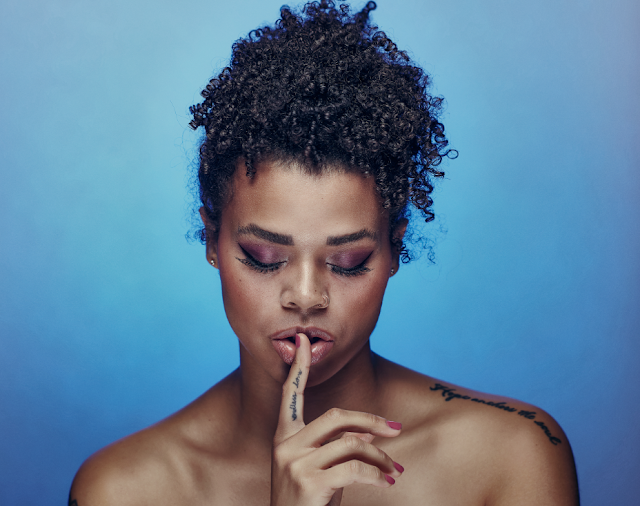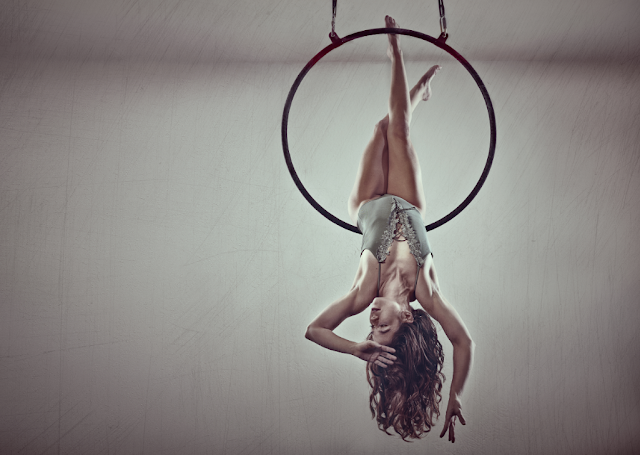What do you think makes a good photograph?
“For me a good photograph can contain a lot of things. I think it's the small details and tone that
really do it for me. It's easier for me to to explain what makes a bad image.”
really do it for me. It's easier for me to to explain what makes a bad image.”
Tell me about your favorite image and the scenario leading up to it
“All of my favorite images are accidents. Most of them are from me doing street photography and
just being in the right place at the right time and not knowing what I got til I got home. One image
that stands out to me was a few years back I was volunteering for Susan G Komen. I was shooting
an outdoor event and I took an image of 2 brothers and a sister, all young teenagers. At the time I
took the image I didn't think anything of it, but when I got home I noticed they all had t-shirts with a
picture of their mom on it. She had died from breast cancer and they were so proud to be there and
had the greatest smiles. There was nothing super technical about the image but it was a very
genuine moment.”
What made you decide to photograph people and why mainly in studios instead of outside
natural light?
natural light?
“I shot outdoors, mainly street photography, for years and years, and kind of fell into the studio by
accident and just really got obsessed with portraiture and lighting. I love paintings of people and and
I'm super into studying lighting while watching movies. In a studio I am able to control everything. I
am also very confident shooting outdoors with natural light and strobes. I think being proficient in the
studio just makes me more valuable as a photographer, and as an assistant. Working in a studio really
made my outdoor photography ten times better, I don't believe natural light photographers have any
advantage like this when it comes to studio lighting.”
When you are posting images, what kind of message are you trying to portray with your work?
“There is no big message in my photography for the most part. I love colors and tones and hope I
make interesting images that are eye pleasing. That being said I'm really sick of seeing pictures of
pretty young girls next to a softbox, there also a lot of wedding and engagement pictures that all look
the same. It's super easy to do that kind of stuff. I like to work with athletes and dancers the most.
Actors are super fun to work with as well. For my kind of photography I don't believe in making my
subject comfortable and for the most part I don't pose my subjects. Now if I'm working for a client all
that changes. The message I'm trying to portray in my work is for people to hire me.”
What are your favorite type of images to take during your free time? How do these images
translate into the images you take for clients?
translate into the images you take for clients?
“I wish I had more time to do street photography, that's what I would do if I had free time and that
doesn't translate to client work. Unfortunately, my free time is spent trying to generate business, I
try to, 3 times a month work, with a local model or an athlete from an agency just to keep sharp and
try new things out, this work probably is the most important work for me for getting jobs.”
What kind of advice would you give to an amateur photographer wanting to turn their hobby
into a business?
into a business?
“Practice, practice, practice and get good at your craft, I mean really good. Know your equipment,
assist photographers and take business classes.”
What is the most valuable lesson you’ve learned while in the photography business and what
is the story behind that lesson?
is the story behind that lesson?
“Do your research!!! do research on your clients before you negotiate a price, I don't care if its a
headshot, go on LinkedIn or Facebook and find more out about them. I don't have a flat rate, some
people and companies can afford more than others. I'd rather do something for free that I like for a
good cause than work for 50 - 100 bucks. I did a job for a huge nationwide veterinarian business,
which is owned by a mega candy corporation but at the time I didn't know this. They were being
a*@holes when it came to licensing and I stood my ground and got what I thought was fair. But I
didn't realize they were owned by this mega candy corporation and that mega corporation ended up
using the images as well. So if I would have done my research I would have had a tighter licensing
contract, known who they are owned by, and would've made thousands of more dollars. Also, be very
clear with clients to what exact services you are providing beforehand, communication is crucial.
Itemize everything!!! Reach out for help and pay for advice if you have to. There are people out there
that can help.”
Did you go to school for photography or are you self taught? If you went to school, what was
the most valuable thing you learned during that time? if self taught, what do you think helped
you the most while trying to become a professional?
“So I am more self taught but I did go to school for a bit. I shot film since I was young and I got a
digital 4 megapixel camera in 2003. Around 2010 I got my first real dslr and didn't really know how to
use it and I wanted to get into video and away from photography. So I enrolled in a photography class
with the intent on learning my camera. 5 minutes into the first class the teacher said " if you think we
are going to sit here and talk about cameras and lenses and gear you're in the wrong class. This is
art." There were 20 of us in that class and me and one other person are the only ones who got A's.
We talked about the process and studied photographers from the past and I fell in love again with
making images. I've also assisted photographers good and bad, and from the bad photographers I
realized what I don't want. The biggest thing that has helped me absolutely are support from my wife,
family and friends. Photography is about teamwork, I rarely work alone. I can't stress practicing.
Practice, practice practice. Experiment and keep a journal and write down all the bad things that
happened on your shoot. Your eyes, attention to detail and personality are very important. People
aren't going to hire you if they don't like you and it's super awesome when you have repeat clients
and become friends with them as well.”





No comments:
Post a Comment